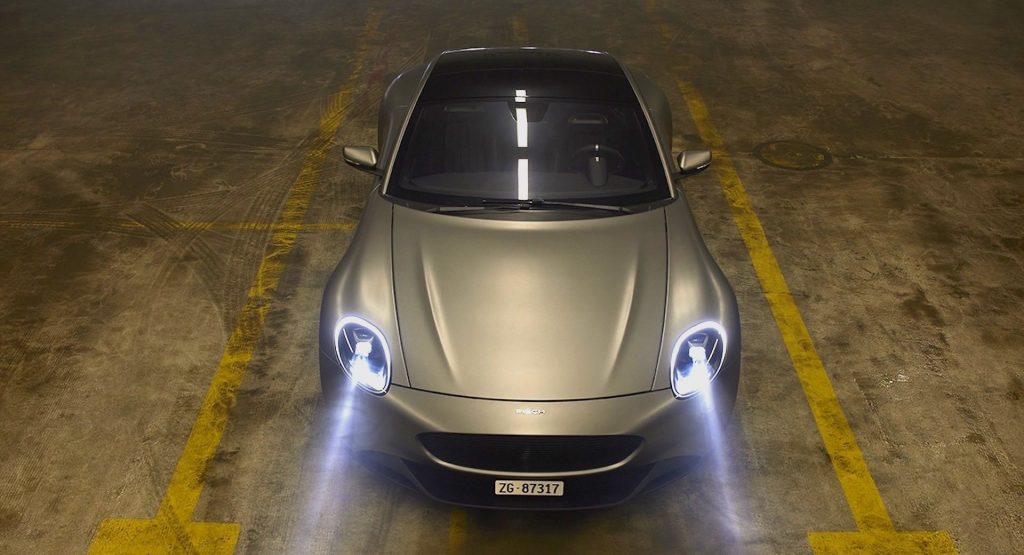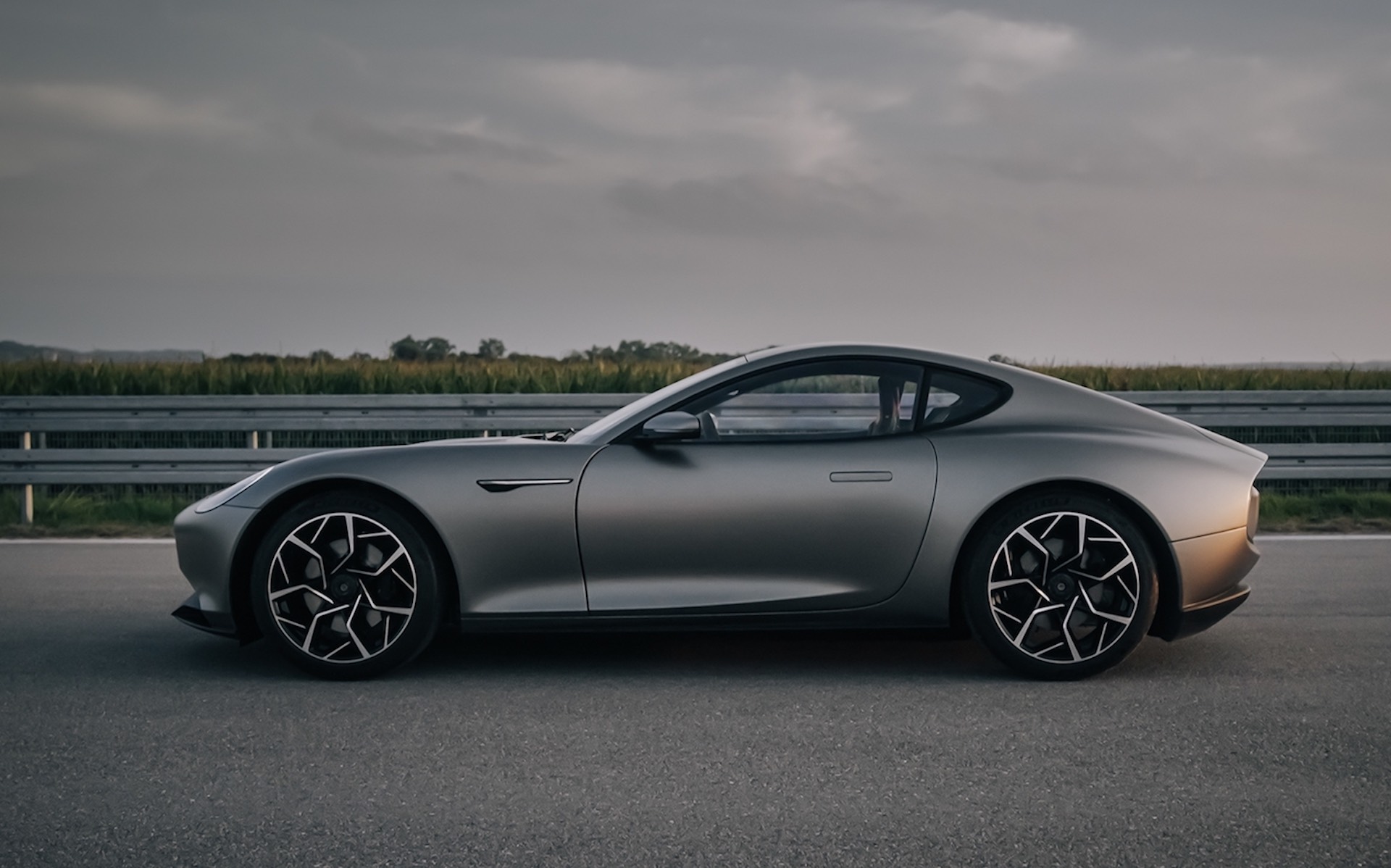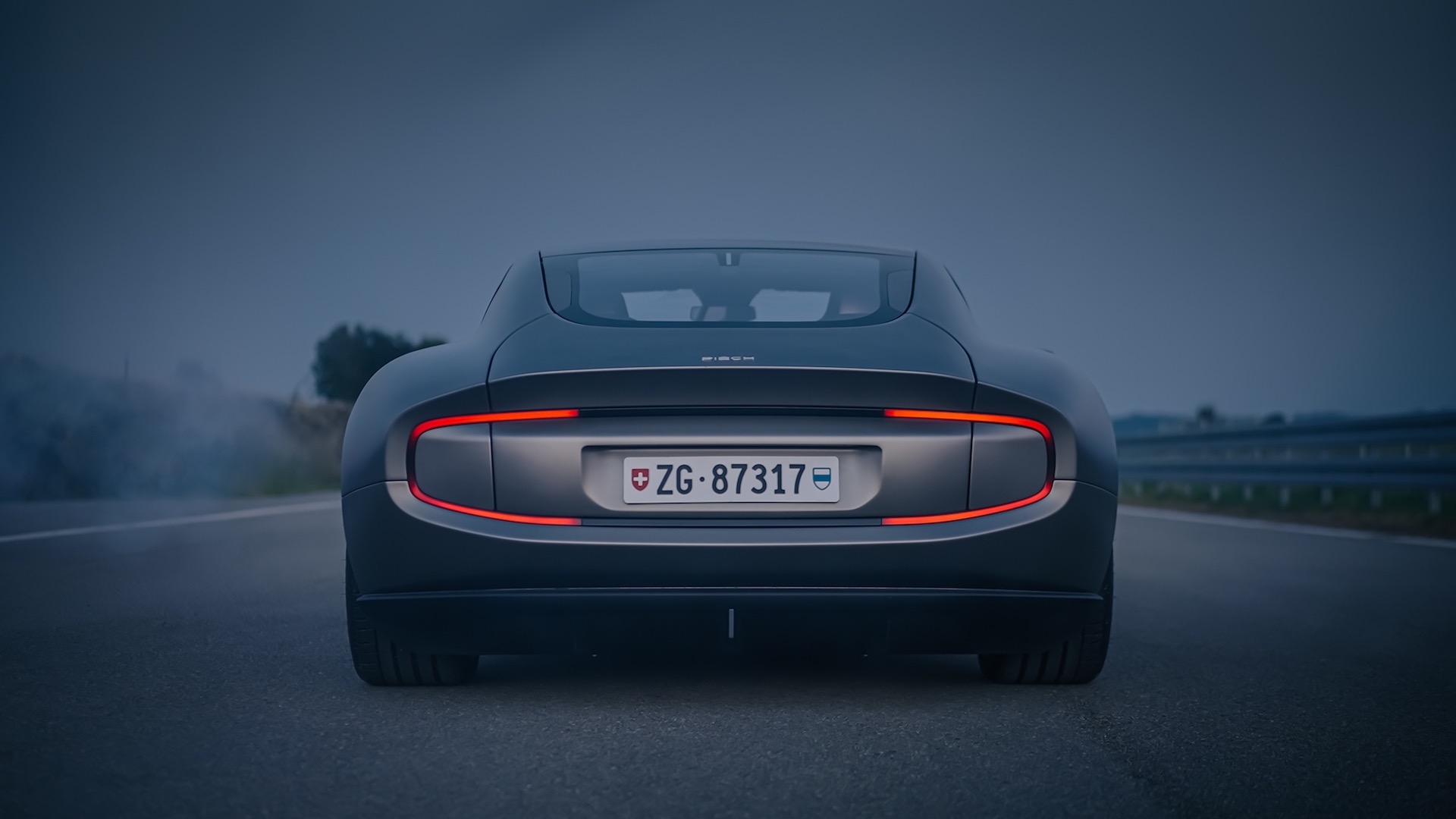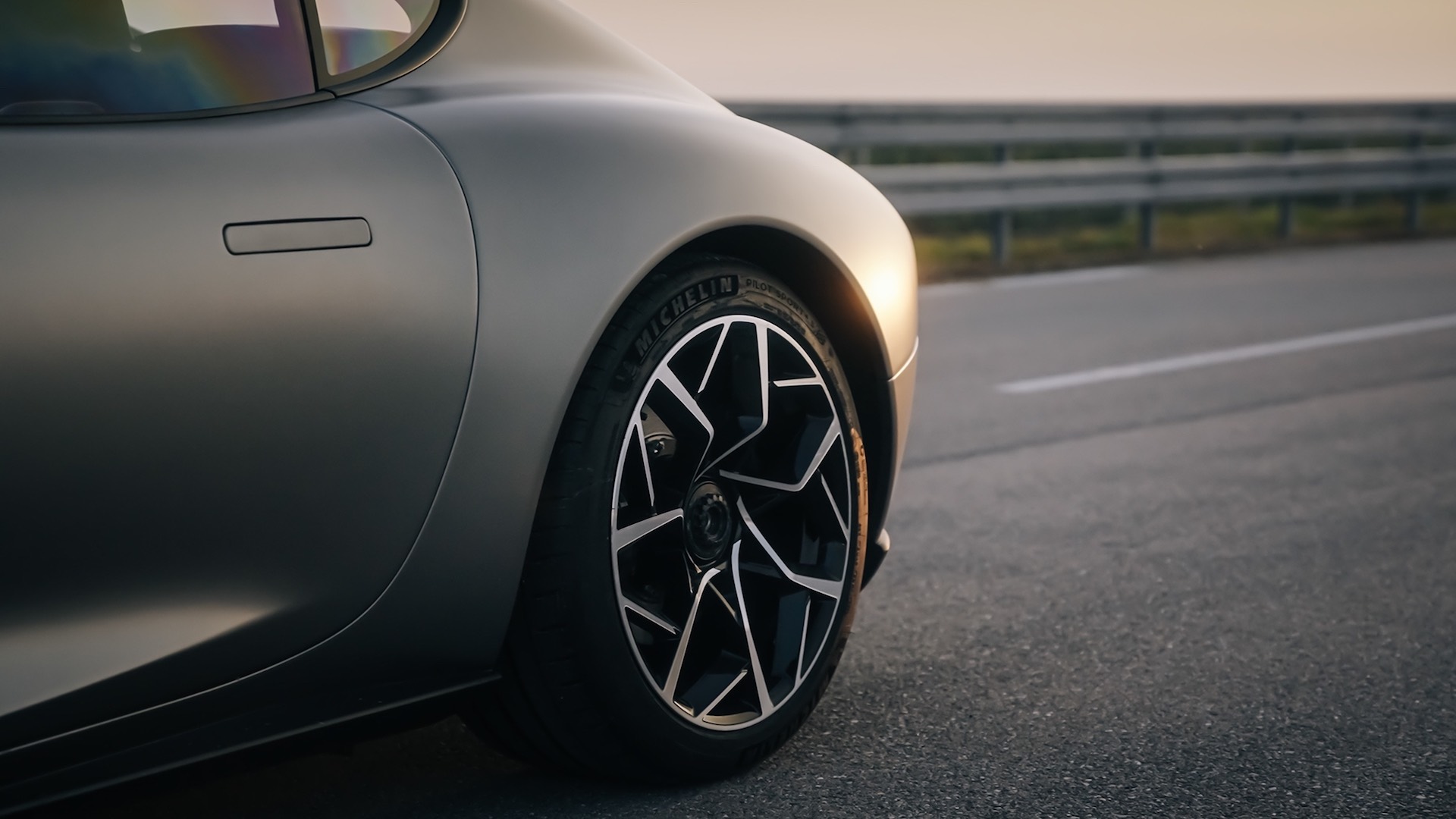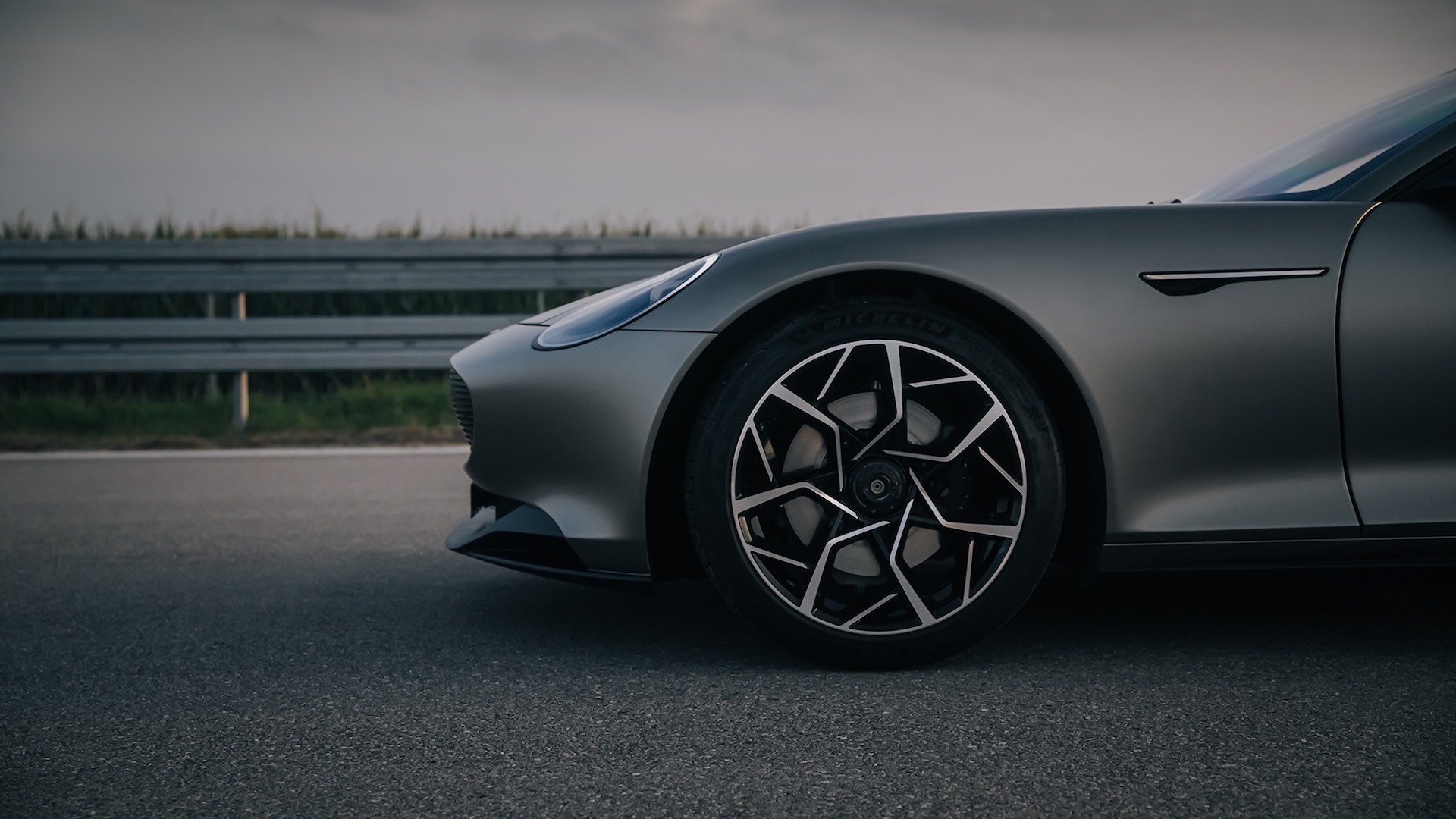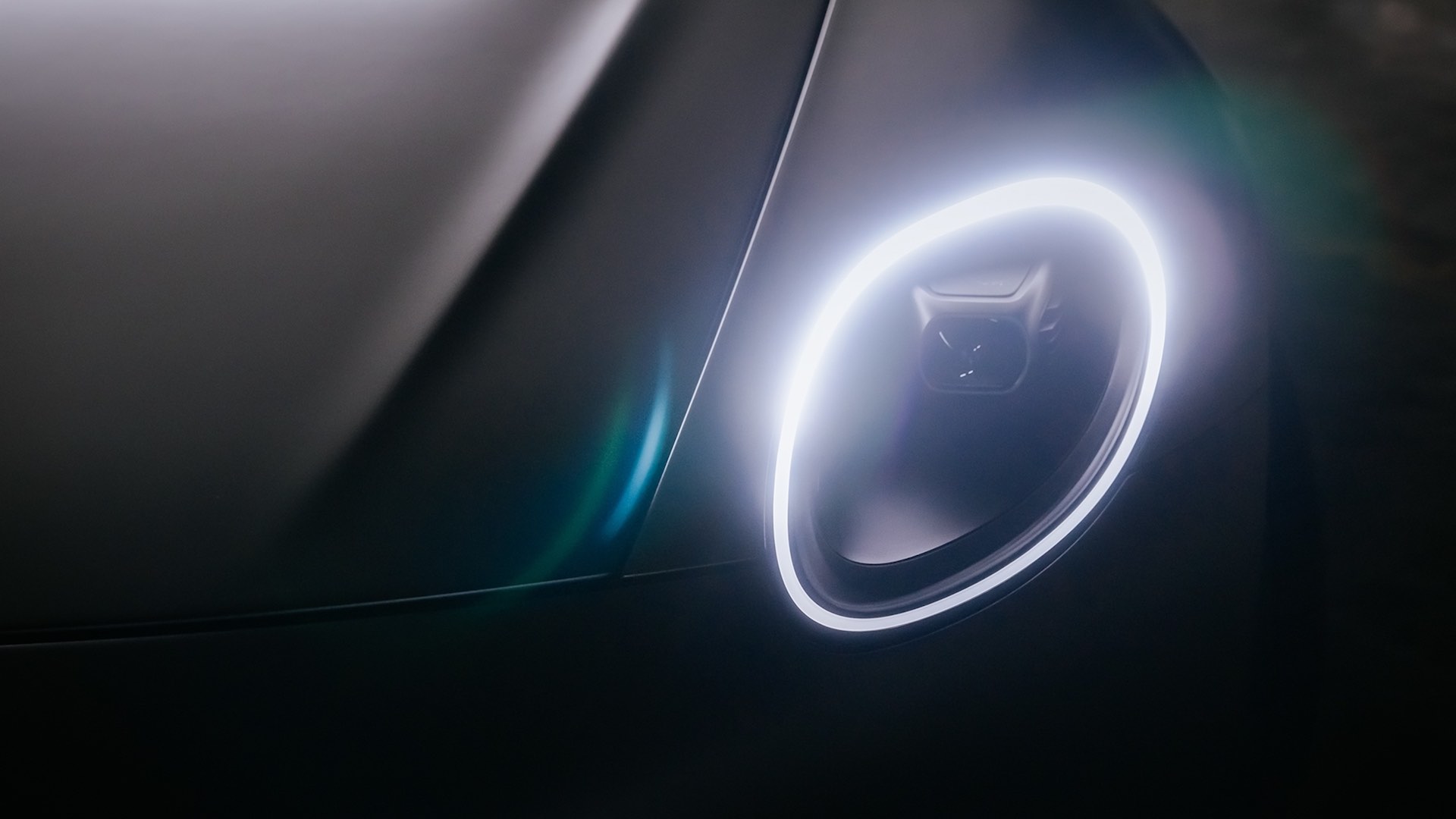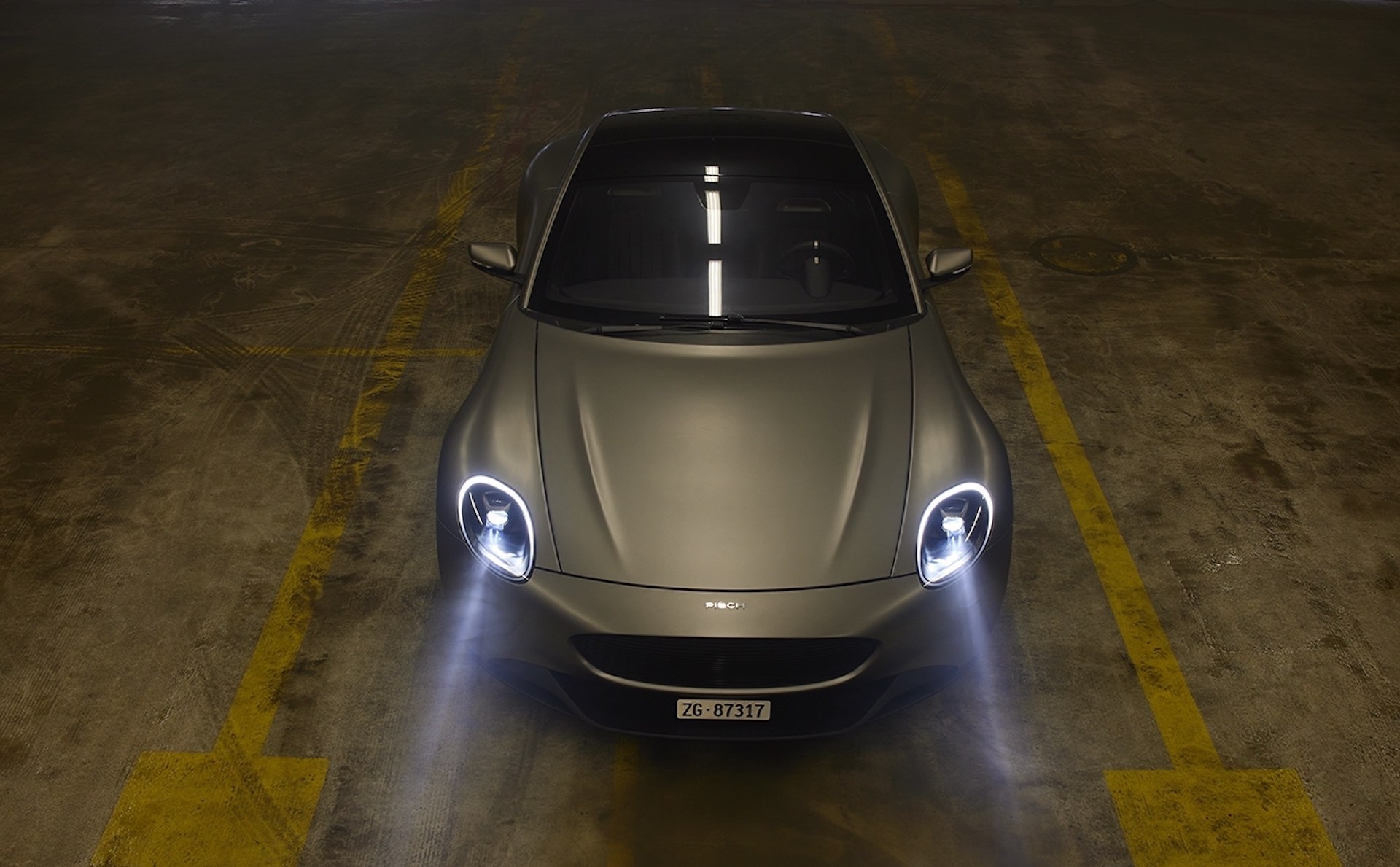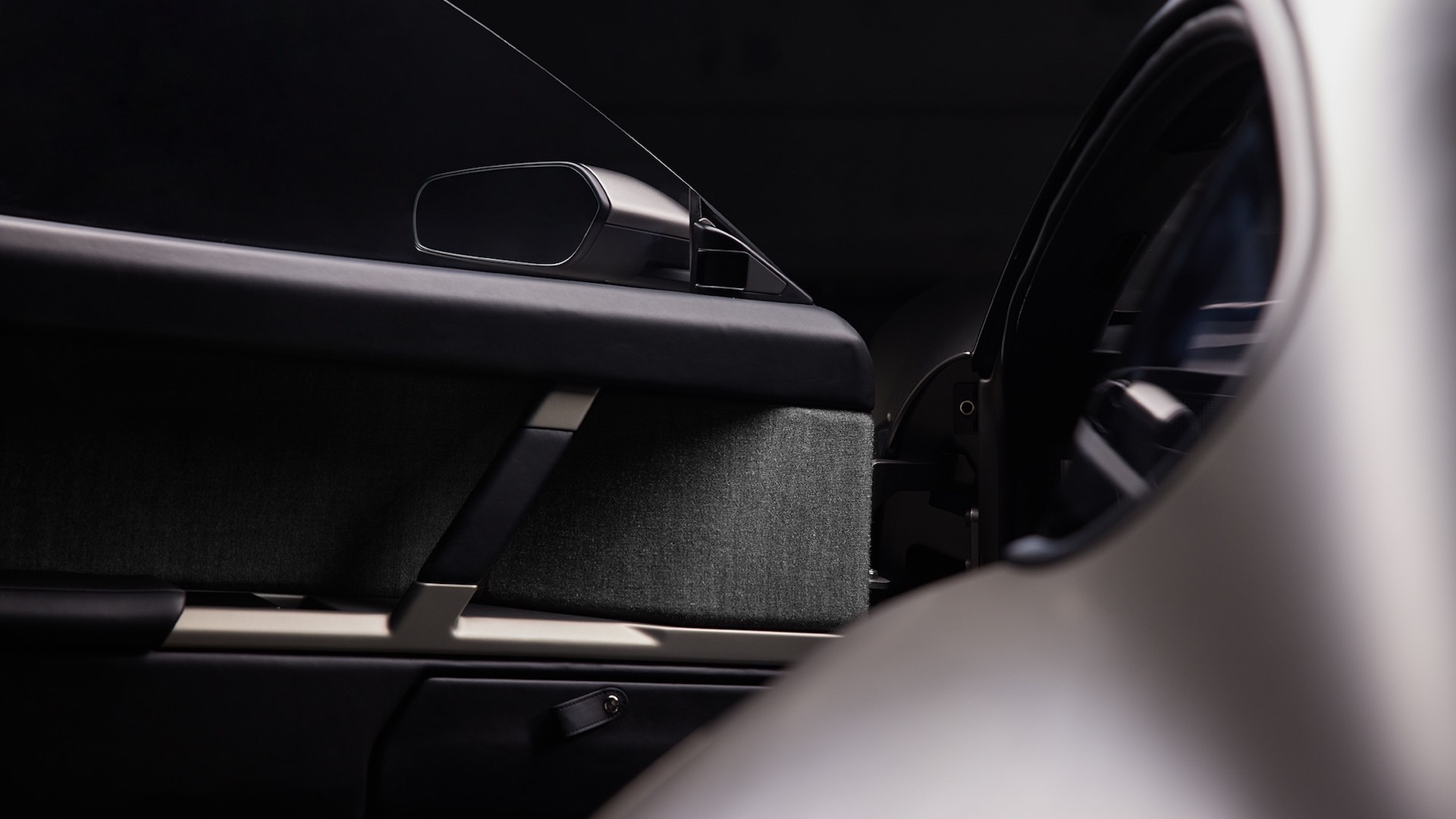Proving that the 2019 Mark Zero EV concept was more than a flight of fancy, EV startup Piech Automotive has announced that its Aston Martin-style sports car has entered the testing stage ahead of a 2024 launch.
Now called the Piech GT, the two-seater coupe is similar in size to a Porsche 911, which seems fitting since boss Toni Piech’s great grandfather, was none other than Ferdinand Porsche.
The long-hood, short-deck proportions are much closer to something like an Aston Martin Vantage, and the rather bland styling is surprisingly traditional given the high-tech electric powertrain underneath its skin.
One motor on the front axle and a pair working the rear combine to provide 600 hp, which the company says is enough for zero to 62 mph in 3.0 seconds. That might be a conservative estimate, given that Piech suggests a curb weight of around 1800kg (3968 lbs), making it substantially lighter than most EVs.
Related: Former VW Chairman Ferdinand Piech Reportedly Passes Away At 82
Piech claims that feat is possible thanks to lightweight ‘pouch cell’ technology from Chinese company Desten, which makes for batteries that are lighter, run cooler, and can be charged more quickly than conventional alternatives. The company says the GT can be charged from zero to 80 percent in just eight minutes, and when full gives a range of 311 miles.
The power pack is arranged down the center of the car and across the rear axle area rather than on the floor to give good weight distribution and a low seating position. Piech says the car’s architecture is entirely flexible, so can be easily adapted to suit other applications, openly admitting that it’s working on a Piech SUV and a sports sedan.
It also claims the platform is versatile enough to accommodate alternative powertrains in the future. Don’t get your hopes up for a quad-turbo V8 though; Piech is talking about hydrogen.
Piech says the GT will be built by a still-unnamed European manufacturer at a rate of 1200 per year in its first year of production, and plans to sell it in Europe, the U.S., and China starting in 2024. No word on pricing, but we suspect it will be priced to compete with higher-end models of the Porsche 911, which currently starts at $101,000/£85,000.








